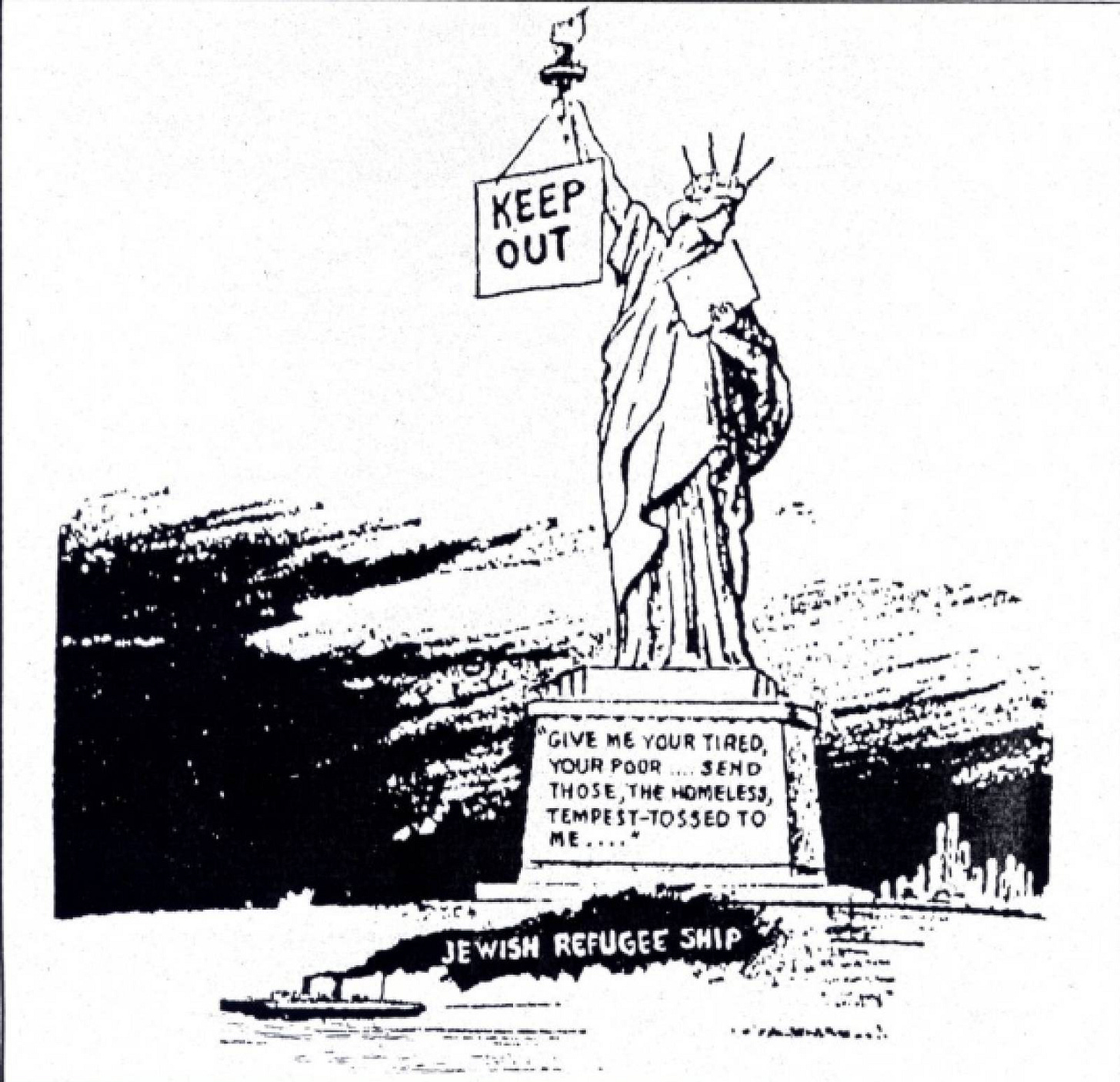“Must the entire world go to war for 600,000 Jews in Germany who are neither American, nor French, nor English citizens, but citizens of Germany?”
-Fr. Charles Coughlin in The Detriot News, January 30, 1939
In Part 1 of this series, I explain how President Roosevelt lured Japan to attack Pearl Harbor, thus drawing the U.S. into World War II. In this part, Part 2, I debunk the claim that the U.S. entered the war to end the Holocaust.
The Holocaust — the Nazi genocide of Jews, gypsies, Slavs, and homosexuals — is used to justify Allied participation in World War II. Like the war itself, the Holocaust has its own legacy, with films like Schindler’s List and Life is Beautiful portraying the horrid conditions in concentration camps. Yet to claim that this justified U.S. involvement in World War II is inaccurate.
For this article, I do not pay heed to Holocaust revisionism, which disputes the number of Jews that the Nazis killed. Rather, I stick to the figure of exactly 6 million Jews murdered, as conventional history dictates. I have no reason to doubt the well-funded and illustrious Holocaust researchers who derived this number!
I also limit myself to discussing Jewish sufferings under the Nazis.
However, I note that the Holocaust was not uniquely Jewish. The Romani (gypsies), for example, suffered worse conditions under German occupation. Nazi-backed Croats tortured the Serbs. Polish Catholics were decimated. In war, minorities tend to face persecution, though this in no way diminishes the ordeal of any particular group.
To understand why the persecution of Jews did not justify American war involvement, we have to start at a French spa and resort village.
Where Jews Were Condemned to Their Fate
Évian-les-Bains is a stunning French village located near the border with Switzerland. There is much to do here: skiing in the winter, yachting in the summer, and mineral baths year-round. For over 170 years, the town has been home to the Évian water company, which is currently owned by Danone.
In 1938, Évian-les-Bains hosted a conference to decide the fate of Jewish refugees fleeing from Germany. Thirty-two nations attended, including the United States, Britain, and France. There were also representatives from the American Jewish Committee and the World Jewish Congress.
Despite the fact that half of Germany’s 900,000 Jews had fled their homes by this time, the conference voted against aiding these refugees. Even the Zionist groups protested against Western countries accepting German Jews. Only the Dominican Republic agreed to take in significant numbers of Jews.
The U.S. and other Western countries accepted hardly any Jews in the end. In 1938, the U.S. approved visas for only 20,000 Jewish refugees, and 82 percent of the American public opposed accepting any more. There was no appetite among Americans, Jewish or otherwise, for helping the persecuted Jews of Europe.
The Holocaust, when it did happen, was nowhere close to Americans’ minds.
The Holocaust of Jews Begins
In January of 1942, almost three years into the war, Nazi leaders attended a conference in Wannsee, Germany, to decide what to do with the Jews. Top officials like Adolf Hitler and Hermann Goering could not attend, since they were busy fighting the war.
The conference decided upon a “Final Solution to the Jewish Question.” This involved rounding up Jews in occupied territories, and deporting them to work camps in Poland. Historian Peter Longerich claims that “deportation” was a code word for “murder.” In other words, The Wannsee Conference laid out the plan for the destruction of Jews, who would be transported to their deaths.
The United States did not care. As the U.S. Holocaust Memorial Museum explains,
Americans generally had access to reliable information about the Nazi regime’s persecution of Jews as it happened, but most people could not imagine that a mass murder campaign was possible… The United States joined the Allies’ fight against the Axis powers (led by Germany, Italy, and Japan) in World War II to defend democracy, not to rescue Jewish victims of the Nazi regime.
The U.S. did not join the war to help the Jews. Until 1944, U.S. forces were mainly focused on fighting Japan.
The Russians Ended The Holocaust
When the Russians (Soviets) freed Poland, they also liberated the concentration camps in that country. Indeed, the Soviet Red Army rescued Jews from the worst camps: Auschwitz, Treblinka, Majdenek, Gross-Rosen, Chelmno, etc. Furthermore, the Red Army was the first to save Jews from these camps, in the summer of 1944, when the U.S. and Britain were just beginning to enter the European theatre in a serious manner.
In April of 1945, the U.S. liberated a few minor camps: Buchenwald, Dachau, and Manthausen. Yet by that time, most of the oppressed Jews had already been freed. Without U.S. involvement, the Russians could have easily freed all of the remaining prisoners.
The American contribution was marginal at best.
Conclusion
An average, educated person might claim that since American GIs liberated the Jews, the U.S. was right to enter World War II. In this article, I destroy that notion: the Americans never cared about the plight of Jews in Europe. To the extent that the Jews were freed from oppression, it was the Soviets who saved them. The U.S. joined the war in 1942, and did practically nothing about The Holocaust until it was too late.
Furthermore, the U.S. recruited Nazi scientists after the war, including Wernher von Braun, a rocket scientist who later developed NASA’s space program. During the war, von Braun toured Buchenwald concentration camp, where he hand-picked prisoners to help him work on missiles. Many of the Nazi scientists the U.S. hired, under Operation Paperclip, were perhaps guilty of war crimes.
Throughout this article, I use the standard historical framework to advance my argument, instead of resorting to Holocaust revisionism or denialism. Even with these strict parameters, it is impossible to justify American intervention in the war to rescue the Jews.
So why did the United States enter World War II? I will cover this in my next instalment.










in France, it would be strange to overlook the influence of free-masons in the bureaucracy...and it would strange as well to ignore the influence of ethnic minorities, and mostly the Jews, in the Bolshevik revolution...there are always small groups of interest working for their own agenda
About that historic moment, you should watch (or listen) the review made by Blackpilled of Ken Burns' documentary covering this exact period. The jewish question is most likely at the heart of the american decision to get into the war.
https://odysee.com/@Blackpilled:b/burnslibel1:8